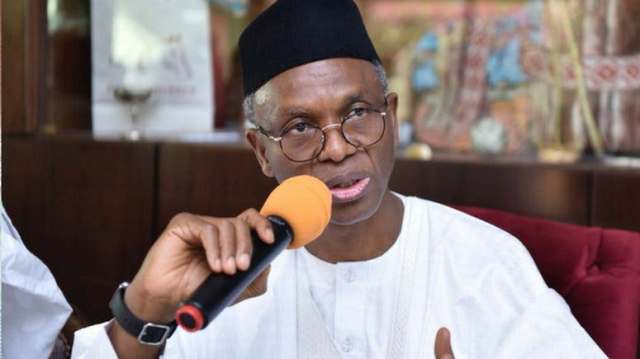A retired Nigerian ambassador responded to my first article by drawing attention to the problems that the Ministry of Foreign Affairs has faced in the last two or more decades: poor funding, long delays in the appointment of ambassadors, low morale, tardy responses to global events, and lack of a clear policy direction. That ambassador believes that most of Nigeria’s big foreign policy initiatives were taken during the period of military rule—not during the Fourth Republic of so-called democratic governance.
Many of these points rhyme with the points raised in a recent policy brief by the Crisis Group on Nigeria’s declining role in world affairs, although the Crisis Group dates the rot to the period after Obasanjo’s government of 1999-2007. I don’t wish to get into these issues since I haven’t done work on the internal workings of the ministry.
However, it would be surprising if the foreign ministry is insulted from the dysfunction that many scholars, pundits and ordinary Nigerians complain about when they discuss Nigerian politics, which is marked by high levels of corruption and multiple insecurities. At the heart of this dysfunction is the way politics has been purged of values and policy direction or ideology and reduced to mere transactions for self-enrichment.
SPONSOR AD
Jibrin Ibrahim, a former director of the Centre for Democracy and Development, captures this sad state of affairs in ‘Democratic Regression, Political Parties, and the Negation of the Popularity Principle’, and more recently in Premium Times, in which he lamented the degeneration of Nigeria’s party system.
Large-scale cross-carpeting by opposition party members to the governing party for material returns after every election is rife; powerful figures act as godfathers in political parties and engage in wheeling and dealing during party primaries to rig elections in favour of their candidates; and legislators are accused of extracting payments from heads of agencies before the approval of their budgets.
Nigeria clearly lost its bearings when it was egged on by two of France’s client leaders in Africa, Alhassan Ouattara of Côte d’Ivoire and Macky Sall of Senegal, to wage war against a neighbour with whom it shares more than a 1,608-kilometre border and close cultural ties under the pretext that it was trying to restore democracy in that country. That threat, which eventually fizzled out, was a strategic policy blunder of historic significance. It is likely to have far-reaching effects on Nigeria’s leadership role in the subregion.
What made the decision even more ludicrous was that Ouattara and Sall are no democrats—Ouattara changed his country’s constitution to run for a third term as president and is reported to be considering a fourth term; and Sall gave up on his aggressive quest for a third term in office only when he was confronted by sustained mass protests.
Tinubu’s electoral victory was also questionable. Indeed, his victory was seriously being contested in court when he made the decision to get ECOWAS to invade Niger.
The argument has been made about Nigeria’s overlapping interests and need to be pragmatic in dealing not only with France, but also with global economic blocs or formations, such BRICS. It is important to note that of the 10 full or permanent members of BRICS (Brazil, Russia, India, China, South Africa, Saudi Arabia, United Arab Emirates, Iran and Ethiopia), only Ethiopia, and Iran and Russia, each of which is under stiff US sanctions, has lower volumes of trade and investments with the US than Nigeria. The others trade very heavily with the US—far higher than Nigeria, which is timid in asking for full membership, preferring to play a waiting game in the name of pragmatism.
Indeed, close US allies, such as Saudi Arabia and the UAE, which have high levels of trade and investments with the US, are not constrained by their overlapping interests in deciding to seek and obtain full membership of BRICS. BRICS, it should be noted, aims, among other objectives, to counter the weaponisation of the dollar, in which the US and its Western allies freeze the foreign exchange reserves of countries they strongly disagree with.
While most of the BRICS countries have high levels of overlapping economic relations with the US and the rest of the world, they believe that it’s in their strategic interest to find ways of financing their trade relations without being overly exposed to the US dollar, which can be used as a weapon against them. They’re still pragmatic in nurturing their overlapping trade relations, but have adopted the strategic or long-term view that dependence on the US is bad for their economic development.
The pitfalls of transactional foreign policy
I would like now to address two big problems associated with a transactional foreign policy. The concept of transactional foreign policy has gained importance in recent years in the study of global politics. Galib Bashirov, in his article ‘The rise of transactionalism in international relations’, defines transactionalism as ‘a foreign policy approach that favours bilateral to multilateral relations, focuses on short-term wins rather than longer-term strategic foresight, adheres to a zero-sum worldview where all gains are relative and reciprocity is absent, rejects value- based policymaking, and does not follow a grand strategy.’
Even though Bashirov’s article focuses on Turkey, it is the US’s Donald Trump who has been more closely identified with transactionalism as he seeks to upend alliances and treaties by insisting on short-term wins for the US in his dealings with both friendly countries and enemies.
If we remove the reference to multilateralism, which small states embrace to maximise returns in global institutions they contribute very little to financially, almost by definition the foreign policies of small or inconsequential states tend to be transactional. Such states want to get along with all big powers in trying to squeeze out whatever trade, investment and aid benefits they can extract from the global system.
As we’ve also observed, such states may also decide to become vassal states of one big global power if they believe that shopping around is likely to yield less returns than picking one powerful patron. During the Cold War, South Korea and Taiwan were vassal states of the US, which protected them from Communist North Korea and China, and facilitated their transformation into industrial states.
Bangura wrote from Nyon, Switzerland [email protected]




 1 week ago
29
1 week ago
29







 English (US) ·
English (US) ·